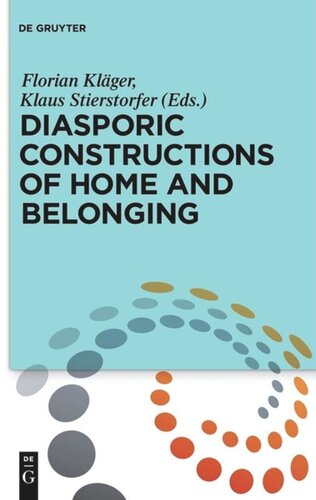

Most ebook files are in PDF format, so you can easily read them using various software such as Foxit Reader or directly on the Google Chrome browser.
Some ebook files are released by publishers in other formats such as .awz, .mobi, .epub, .fb2, etc. You may need to install specific software to read these formats on mobile/PC, such as Calibre.
Please read the tutorial at this link: https://ebookbell.com/faq
We offer FREE conversion to the popular formats you request; however, this may take some time. Therefore, right after payment, please email us, and we will try to provide the service as quickly as possible.
For some exceptional file formats or broken links (if any), please refrain from opening any disputes. Instead, email us first, and we will try to assist within a maximum of 6 hours.
EbookBell Team

4.8
74 reviewsDiaspora studies has developed in recent years from disparate enquiries into diasporic phenomena in political science, anthropology, history, geography, and literary and cultural studies. Its emergence as a full-fledged transdisciplinary research field has been predicated to a large degree on an interest in questions of dispersal and mobility. Based on the proceedings of an international conference by the Marie Curie Initial Training Network CoHaB, this volume undertakes to shift the focus to phenomena of home-making and the articulation of a sense of belonging in diasporic contexts. Contributors from a broad range of disciplines discuss a variety of historical and geographical instances of diasporas, exploring the methodological and theoretical challenges posed by the subjects of ‘home’ and ‘belonging’. Including an interview with Homi K. Bhabha on these subjects and the place of theory in diaspora studies as well as contributions by such central figures as Pnina Werbner and Ihab Hassan, the volume aims at offering a new prospectus of the range and potential of academic work on the cultural formations of diaspora.